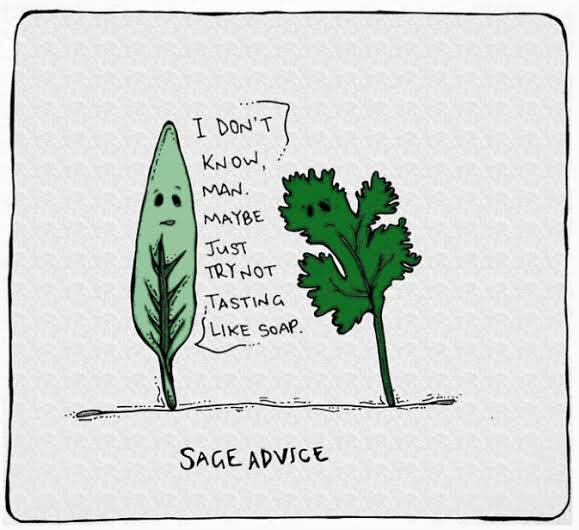Job specs, much like coriander are things (for lack of a better word) we either love, or we hate.
I hate cooking - Mackay
We love when it speaks to our exact set of skills. We love when it calls for us to do things we've done hundreds of times before - "done it before, will do it again" or "I can do that with my eyes closed". We get excited when the cherry on top of it all, is a bunch of perks that we've always wished we might have, if we get the job!
In another comparison (because why not), much like horoscopes, job specs are sometimes quite generic, and at times when they just seems to line up exactly how we want it to, and to keep with the analogy - "the stars align".
Note: I do acknowledge that these specs are often just conversation starters.
In reality though, all specs were not made equal and in fact, some are very badly written. More often it does not fully describe what you'll actually be doing, because let's face it, as a UXer and not dissimilar with any design discipline that involves figuring things out, you'll be tasked to do just that - "figure things out".
Let's talk about when we hate job specs
The obvious one is - we hate job specs that ask way too much of us, those that describe four job roles in one, are spread over three A4 digital pieces of paper. We also hate job specs when they challenge us; when it challenges what we know. We go on the defence, we quickly lose our enthusiasm, and it often triggers a visceral effect - almost inciting nerves causing rosy cheeks for some and general heat under the collar (overboard-ly expressive I know, but you get my drift) for others.
We also hate job specs when it challenges us; when it challenges what we know
This is a normal human reaction, to something that challenges us. We make excuses for why where we are right now is exactly where we need to be and we might even just go quiet on the person that sent us the spec because silence is better than acknowledging defeat, right?
Why not accept the challenge as an opportunity to level up?
At the point of reading the spec, there is no commitment from either side, neither yours nor the recruiter/talent scout - or whatever fancy name is being used in 2021 to describe the person trying to place you.
All in the name of being overly dramatic, watch Will Smith explain why you cannot be afraid of jumping out of a plane if you've not yet jumped out of a plane. Watch that >
Good job specs are the perfect opportunity for you to find out what the industry is looking for. A well-crafted job spec, if nothing else provides you, at no charge, with the structure (thank you Company-X) for a course you can follow to mould yourself into a more challenge-accepting-designer.
Break down the spec into a few sections:
What is the industry?
How long has it/have they (company and industry) been around?
What problems are they solving?
How do they solve problems?
What skills do they have?
Which skills are they hiring?
As it has got to be a mutual exchange, what do they offer in return for these skills?
Read 10 specs, then read 10 more and before you know it, not only will this have given you the best understanding of what's out there for the next time you need a refresher but you’ll more easily be able to “read” the company you are applying to, in order to understand them better. Now knowing what you like and dislike, you'll also be better equipped to make the right decisions when it’s time for you to make your move - but most importantly, for every spec you've read that left you feeling inadequate and challenged, you'll have another opportunity to hone in on what you don't know, and level the bleep (bleep) up!
Thanks for reading
Be kind. Be helpful. Be useful
p.s. I am trying something new. I'm trying my hand at shorter pieces and hoping they make as much sense as I think my longer-form posts do. If you've not read anything I've written before, for context, I encourage you to do so and please - give me feedback or start a conversation.

